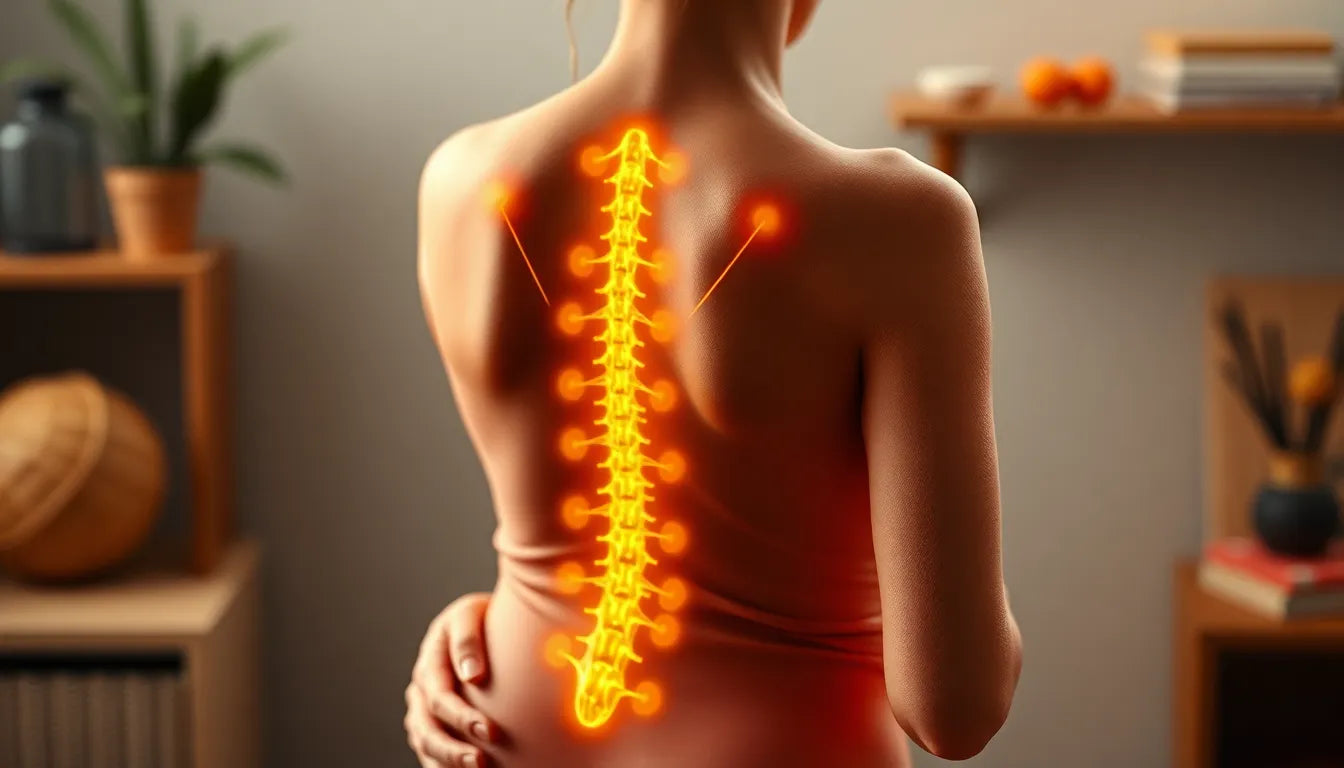Back pain following vaccination is a topic that has garnered attention among many individuals, especially those with pre-existing back issues. While vaccines are crucial in preventing diseases, they can sometimes lead to temporary side effects, including musculoskeletal discomfort. Understanding these symptoms is essential for alleviating anxiety and making informed health decisions.
Musculoskeletal discomfort, such as back pain, is a common reaction post-vaccination. This type of pain is generally mild and short-lived, resulting from the body's immune response to the vaccine. When a vaccine is administered, it triggers the immune system to produce cytokines, which can lead to temporary inflammation in muscles and joints, including the back. For those with existing back problems, this inflammation may exacerbate their symptoms, making it a significant concern.
Why understanding vaccine-related back pain matters
The discomfort associated with vaccination can impact individuals differently, particularly those with chronic back issues. For them, understanding the nature of post-vaccine symptoms can be crucial in distinguishing between what is normal and what might require medical attention. This knowledge can also help mitigate unnecessary worries and reduce vaccine hesitancy.
Public health communication plays a vital role in managing vaccine-related concerns by clarifying which symptoms are typical and which are not. By providing clear and accurate information, healthcare providers can help the public make informed decisions about vaccination, ensuring that temporary discomfort does not deter individuals from receiving necessary immunizations.
Is back pain a cause for concern?
This brings us to a critical question: Is back pain after vaccination a cause for concern, or is it merely a temporary inconvenience? The answer lies in understanding the science behind these symptoms. Generally, back pain post-vaccination is a sign that the immune system is responding appropriately to the vaccine. While it can be uncomfortable, it is usually not dangerous and tends to resolve on its own within a few days.
In the following sections, we will delve deeper into the mechanisms behind post-vaccine back pain and provide practical advice on managing these symptoms. By exploring both expert insights and patient experiences, we aim to offer a comprehensive understanding of this common concern. Stay tuned to learn more about how to navigate back pain after vaccination effectively.
the science behind post-vaccine back pain
Understanding the biological mechanisms that underlie back pain following vaccination can help demystify this common concern. When a vaccine is administered, it stimulates the immune system to recognize and fight the virus or bacteria it is designed to protect against. This process involves the release of cytokines, which are small proteins that play a crucial role in cell signaling during immune responses. Although this immune activation is essential for building immunity, it can also lead to temporary inflammation in muscles and joints, including the back.
This inflammatory response is a natural part of the body's defense mechanism, indicating that the immune system is actively working. While this can result in discomfort, such as back pain, it is generally a sign of a healthy immune reaction. Medical experts from sources like Anodyne.dk and Sundhed.rm.dk emphasize that these symptoms are expected and typically resolve without intervention.
frequency and severity of symptoms
Data from Lægemiddelstyrelsen, the Danish Medicines Agency, provides valuable insights into the prevalence of musculoskeletal symptoms post-vaccination. Muscle and joint pain are among the most commonly reported side effects, yet they are usually mild and self-limiting. While back pain is included in these broader categories, it is not frequently highlighted as a distinct symptom. This suggests that while back pain can occur, it is not a predominant complaint among vaccine recipients.
Medical professionals consistently reassure patients that these symptoms are temporary and part of the body's normal response to vaccination. This reassurance is crucial for public health communication, as it helps alleviate fears and misconceptions about vaccine safety. By understanding that back pain is a common but non-threatening side effect, individuals can approach vaccination with more confidence.
managing back pain post-vaccination
For those experiencing back pain after vaccination, there are several practical strategies to manage and alleviate discomfort. Simple at-home remedies such as gentle stretching exercises can help ease muscle tension. Resting and avoiding strenuous activities for a short period can also be beneficial. Additionally, ensuring ergonomic support while sitting or lying down can prevent further strain on the back.

Lumbar support belt
Provides stabilisation and relief for lower back pain with adjustable compression.

Women's Posture Shirt™ - Nude
Posture shirt activates muscles, relieves pain and improves awareness—ideal for daily support.
It is important to note that while these symptoms are generally mild and resolve within a few days, individuals should consult healthcare providers if the pain persists or worsens. Although rare, persistent pain could indicate an unrelated underlying condition that requires medical attention.
Ultimately, understanding the nature of post-vaccine back pain and employing effective management strategies can significantly enhance the vaccination experience. By recognizing these symptoms as part of a normal immune response, individuals can make informed decisions about their health and continue to participate in essential vaccination programs without undue concern.
addressing misconceptions and concerns about back pain after vaccination
When it comes to understanding back pain as a post-vaccine symptom, it's crucial to address common misconceptions. Clinical insights from sources like Netdoktor.dk emphasize that systemic side effects such as back pain are rare. Instead, most post-vaccination discomfort is localized, and persistent back pain may have alternative explanations unrelated to the vaccine. This perspective is vital in reassuring individuals that while discomfort can occur, it is typically temporary and not a direct result of vaccination.
For those experiencing back pain after vaccination, it's important to consider other potential causes, such as pre-existing conditions or lifestyle factors, unless there is clear evidence linking the pain to the vaccine. This approach encourages a broader understanding of one's health and helps mitigate unnecessary concerns about vaccination.
rare serious complications: setting the context
While common musculoskeletal pain after vaccination is generally mild and self-limiting, it's worth mentioning that rare serious complications can occur. Isolated case reports, such as those involving Guillain-Barré syndrome, highlight the importance of distinguishing between typical post-vaccine discomfort and these rare events. Such cases are exceedingly rare and should not be conflated with the usual muscle or joint pain that may follow vaccination.
By understanding the context of these rare complications, individuals can better appreciate the overall safety of vaccines and the low likelihood of experiencing severe side effects. This knowledge is crucial for informed decision-making and maintaining confidence in vaccination programs.
frequently asked questions
is back pain a common side effect after vaccination?
While muscle and joint pain are common post-vaccine reactions, back pain specifically is less frequently reported but can occur as part of these symptoms.
how long does the back pain last?
Most post-vaccine discomfort, including back pain, is mild and resolves within a few days.
should I be concerned about back pain after vaccination?
Generally, no. It's a sign of your immune system working. Seek medical advice if the pain persists or is severe.
what can I do to alleviate back pain after vaccination?
Try gentle stretching, rest, and using ergonomic aids. Consult a healthcare provider for persistent symptoms.
are there any serious risks associated with back pain post-vaccination?
Serious complications are extremely rare. Most back pain is temporary and not dangerous.
In summary, understanding the nuances of post-vaccine back pain can help demystify these symptoms and alleviate concerns. By distinguishing between common discomfort and rare complications, individuals can make informed health decisions, ensuring that temporary side effects do not deter them from receiving essential vaccinations.
Kilder
- Hansen, L. (2021). "MFR-vaccinen: De 6 største myter aflivet af videnskaben." Videnskab.dk.
- Sørensen, M. (2020). "Stivkrampe (Tetanus)." Netdoktor.dk.
- Jensen, P. (2022). "Kan en god nats søvn lindre kroniske rygsmerter?" Sund i Syd.
- Larsen, E. (2019). "Ondt i ryggen." Solsortevej10.dk.
- Nielsen, K. (2021). "Derfor får vi ondt i ryggen." Region Syddanmark.
- Sundhedsstyrelsen. (2023). "Kroniske smerter." Sundhedsstyrelsen.dk.


















